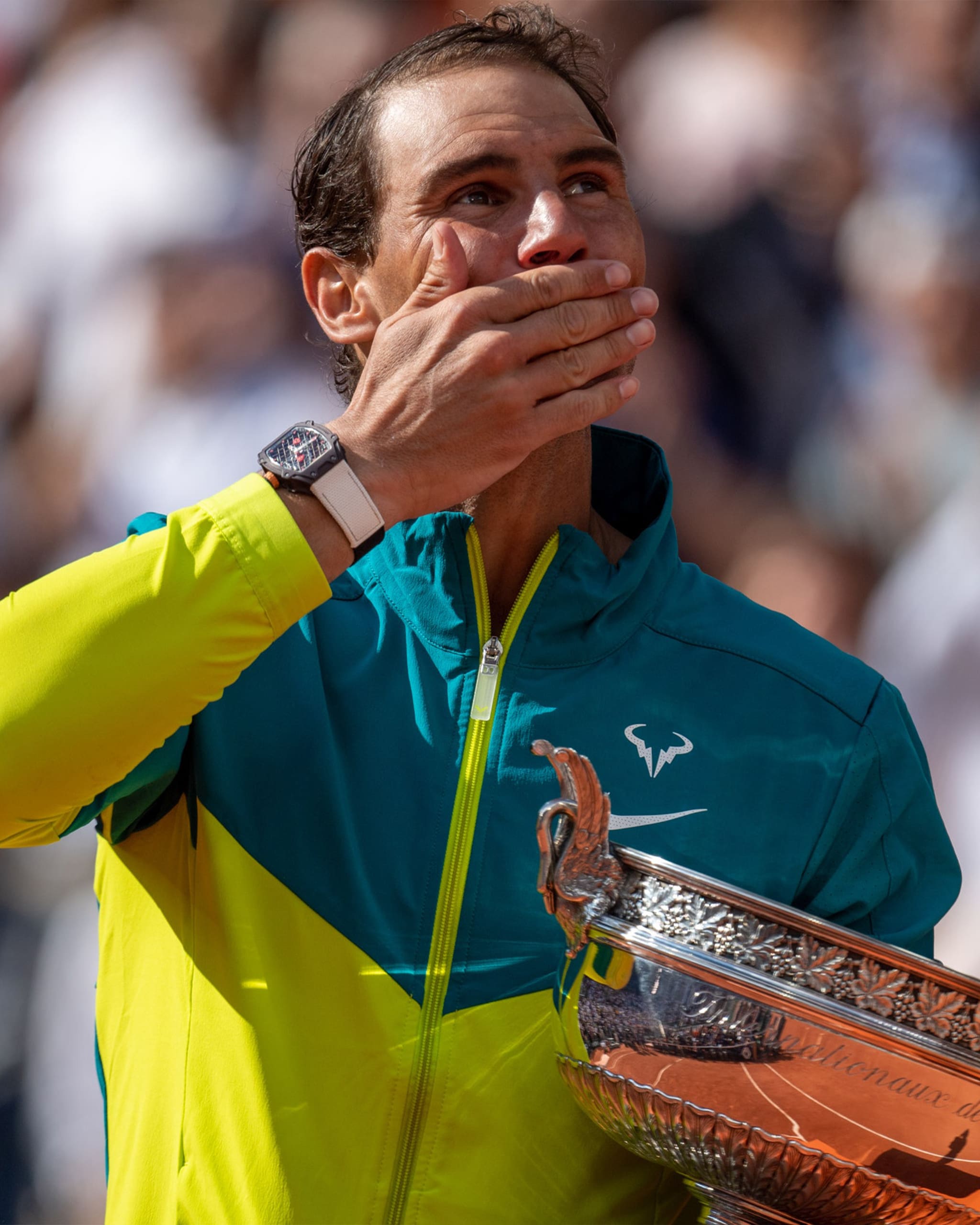Photo: Getty Images
The big news going into the season’s second Grand Slam, at Roland Garros, was more about who wasn’t going to be there. Both the men’s and women’s tours have been rattled lately with a spate of injuries—for starters: former US Open champion Emma Raducanu (wrist surgery), former world-number-two Paula Badosa (stress fracture in her spine), the perpetually effervescent Nick Kyrgios (foot injury suffered during a robbery), and rising Italian star Matteo Berrettini (abdominal injury). In addition, Naomi Osaka is taking a break from the tour to prioritize her pregnancy; Andy Murray is sitting out the French to give himself a better shot at Wimbledon; and 2018 French Open winner and former number-one Simona Halep has been suspended for a doping offense.
All that said, the vast majority of the talk of who we’re missing this year was centered around one particular legend: Rafael Nadal, who’s won a record-tying 22 Grand Slams—14 of them French Open titles, far more than any other player in history. While Nadal has been plagued off and on in recent seasons by minor injuries, his current hip and abdominal troubles are serious enough to keep him from even practicing, much less playing competitively. And while his stated goal is to be back to tennis in time to play September’s Davis Cup matches for his native Spain, it’s anyone’s guess whether that will ultimately prove possible—or whether he’ll be able to play what he’s already stated would be a final French Open next year before retiring.
Who’s still playing? Everybody else. The tournament’s draw was announced earlier today, and the spate of must-watch first-round matches includes Americans Danielle Collins and Jessie Pegula squaring off against each other (Pegula is seeded third), along with second seed (and reigning Australian Open winner) Aryna Sabalenka playing 32nd-ranked Ukrainian Marta Kostyuk, who on a good day is capable of beating a Grand Slam champion.
Despite a recent minor injury causing her to truncate her clay-court warmup in Rome, world-number-one Iga Swiatek remains the favorite. And while Sabalenka has been on a roll lately, clay isn’t exactly her strong suit. Keep an eye on sixth seed Coco Gauff, who’s also been hitting the ball and moving extremely well lately, along with Pegula, fourth seed Elena Rybakina, and seventh seed Ons Jabeur.
On the men’s side, all eyes will be on the still somewhat freshly minted world-number-one Carlos Alcaraz, whom many have tapped as Nadal’s successor for dominance on clay and elsewhere. And while Alcaraz will play a qualifier in the first round, he could face Stefanos Tsitsipas in the quarterfinals; third-seeded Novak Djokovic, another 22-time Slam winner, in the semifinals; and second-seeded Daniil Medvedev—while not a clay specialist, per se, an ever-present threat on any surface—in the finals.
There’s also a very of-the-moment first at this year’s tournament: The French Open will be providing players with protection from cyber-bullying in the form of access to Bodyguard.ai, a content-moderation and audience-analysis tool to monitor their social media accounts and filter out hateful, harassing, discriminatory, or threatening comments and activity. It’s a move that’s been welcomed by both players and players’ representatives—and one we may well see adopted both by other tournaments and by players’ associations.
Play in the main draw of the French Open begins on Sunday.
This article was originally published on Vogue.com
